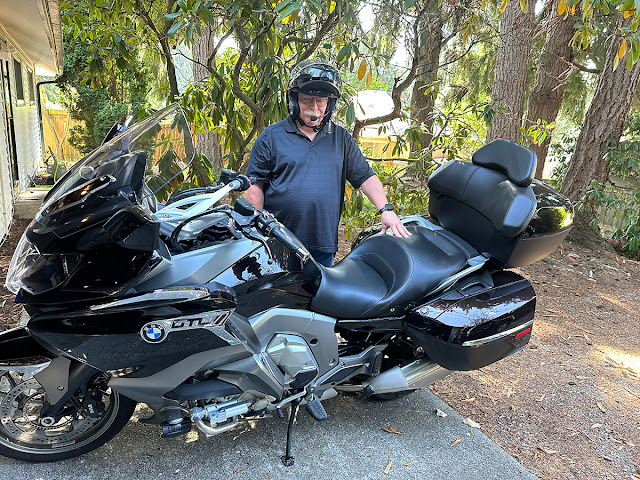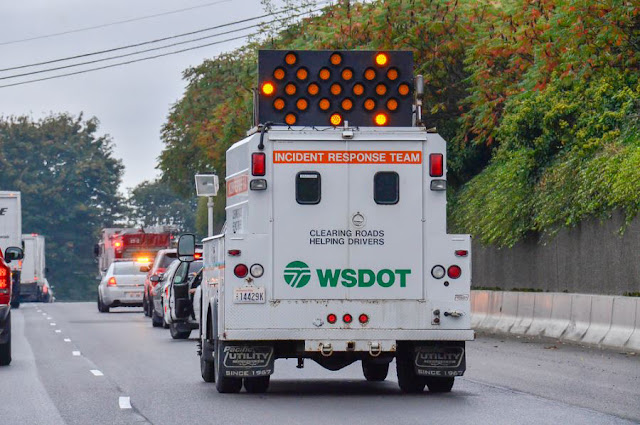By Elizabeth Mount
When Timothy Nored’s motorcycle ran out of gas on Interstate 5 near the 130th Street overpass in Seattle, he was nervous about the potentially dangerous situation. He was partially blocking the carpool lane, had no way to safely cross the freeway to the right shoulder and AAA was 90 minutes away.
That’s when Incident Response Team member Ray McLeod zoomed to the rescue.
“The noise of heavy traffic and having no room to get out of harm’s way, all I could do was watch the cars and buses trying to get over to avoid me,” Nored said. “All of a sudden an Incident vehicle showed up and covered me.”
McLeod quickly assessed Nored’s needs and gave him fuel to get him on his way. That’s when they both discovered the motorcycle battery was dead. McLeod called in support and soon two more IRT arrived to briefly block traffic so Nored could move to the right shoulder. McLeod helped push Nored’s motorcycle to safety.
“The IRT truck came out of nowhere, they are watching!” Nored said. “The response was so quick, the IRT driver was machine-like in his actions, focusing on the task at hand.”
 |
| When Tim Nored’s motorcycle ran out of gas and battery died on I-5 in Seattle, our Incident Response Team came to the rescue to get him safely back on his way. |
This is an excellent example of why our IRT program is so important.
The goal of the program is to keep drivers and their passengers safe and traffic moving. If debris or a collision is blocking a lane or another emergency is taking place, IRT can be called to the scene by dialing 911. On average, our IRT can clear incidents about 13 minutes after they’ve been dispatched, which goes a long way in keeping highways both safe and moving.
We’re so grateful for our IRT members, who we often call our highway superheroes. McLeod has been with the IRT since he started at our agency 20 years ago. He says he particularly enjoys being on the road responding to calls.
“No office for me,” he said. “I love being out in the field assisting with whatever happens next.”
 |
| Our Incident Response Team are key in keeping people on the highway safe and traffic moving. |
Nored said his experience has changed his impression of our agency.
“I am much more appreciative of the function your team performs on a daily basis,” he said. “I will be much more conscious when I see the IRT trucks on the road, give them a wide berth and let them safely perform their job.”
Nored says motorists should be conscious of stalled traffic on the road and give IRT trucks all the room they need because they are vital to drivers and vehicle safety on our roads.
“When they are needed, the IRT team will do just what is required to get a driver to a safe place,” Nored said. “To say I am still appreciative is woefully understated.”
No comments:
WSDOT comment policy
Post a Comment